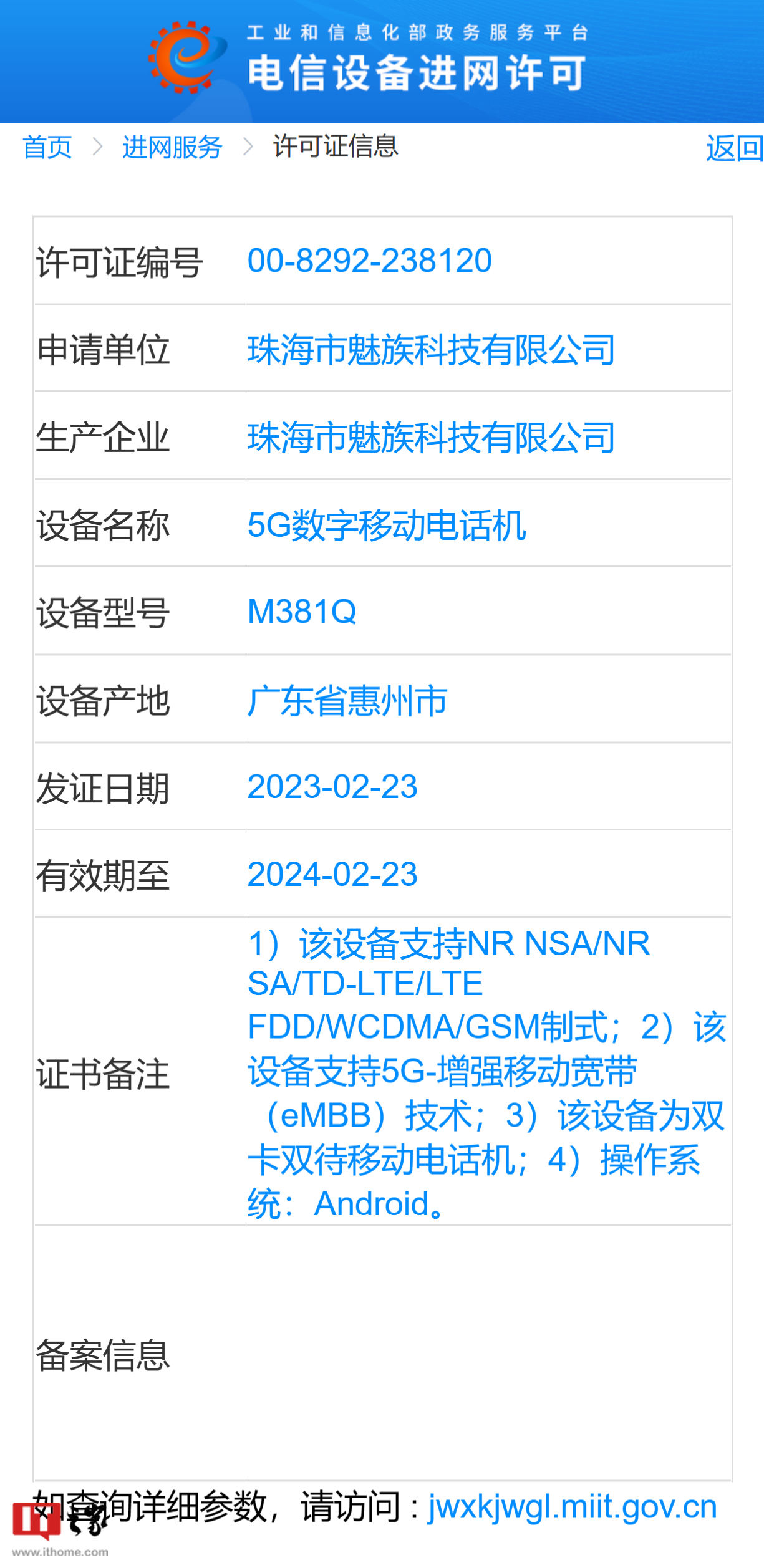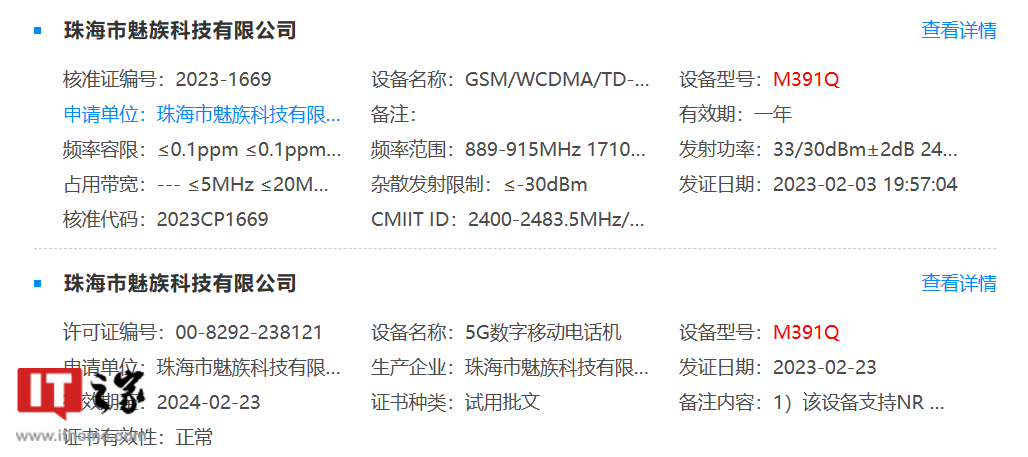Two new models of Meizu 20 series have officially passed the network access permit of TENAA,3C certification and radio approval, the models are M381Q and M391Q, and the complete three certificates are waiting to be released.

Given Meizu’s announcement of a spring release, and the recent warm-up, we expect the new phone to arrive sometime in March.
According to the preheating content announced by Meizu, Meizu 20 series mobile phones will first carry the new generation of unbound ecosystem Flyme 10, use Snapdragon 8 Gen 2 chip, intelligent thinking engine upgrade from “OneMind 888+” to “OneMind 10.0”. At the same time, it is equipped with 13 esports high energy antennas. The whole system adopts flexible straight screen and suspension dispensing 3.0 process, with the narrowest frame of 1.57mm.
In addition, Meizu 20 series new upgraded game mode 6.0, self-developed game speed mode. The Meizu 20 series will support intelligent scheduling of game scenes, reducing latency by 50% compared to its predecessor.

In terms of functions, Meizu 20 series is equipped with Flyme magic storage master, which supports AI intelligent sorting of space debris. It can read and write smoothly without delay for more than 36 months, realizing “orderly space and new mobile phone for a long time”.
The official said that Meizu 20 series Flyme charging optimization plus durable large battery, higher than the industry standard of 800 days, 1600 days of continuous charging and discharging use, the battery capacity is still more than 80%; The total area of heat dissipation reaches 36242mm², which is 56% higher than the previous generation, and a number of new standards for heat dissipation and temperature rise in extreme scenarios are added.
Read Also: Nubia Pad 3D and AR Glasses: A Futuristic Way to View the World
Antutu score given by Igeekphone last week showed that Meizu 20 scored 1,255,418 points. Powered by Qualcomm’s Snapdragon 8 Gen 2 mobile platform, it comes with 12GB of RAM, 512GB of ROM, 2400 x 1080 screen resolution, and runs Android 13-based Flyme system.









